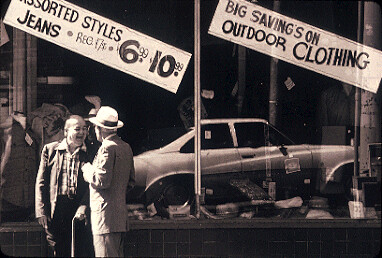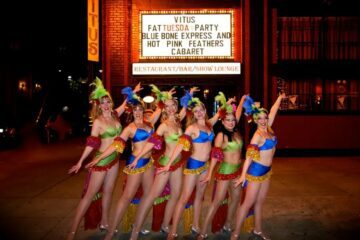Lessons on How to (Civilly) Disobey Thoreau

It’s hard for most people to travel though life without knocking shoulders at least once with Henry David Thoreau. Somehow, and mostly via his oft-celebrated Walden, Thoreau has managed to dip his finger in every topic remotely related to A Well Lived Life. His advice on simplicity (“Simplify, simplify”), his views on being alone (“I have never found the companion that was so companionable as solitude”) and many more are the sorts of things your friends might recite between puffs of illicit drugs. They are things you might nod to, maybe even agree with – but ultimately things that you can’t see yourself living up to. The bearded woodsman just asks too much.
Nowhere is this more apparent, perhaps, than in Thoreau’s views on buying new clothes. A cheapskate in the first degree, Thoreau opposes the notion of wardrobe alteration. “Beware all enterprises that require new clothes,” he says, “and not a new wearer of clothes.” Thoreau, clearly, was aware of the shaky relation between appearances and essences: Not-so-nice people are more than capable of wearing nice, new threads. His solution? Wear your old clothes, your old shoes, those ratty aged socks. Be your old, original, pretty self.
I like that. Thoreau is all about inner beauty and personal wholeness and Being True. And that’s exactly his problem. See, if Thoreau had it his way, people would only buy new clothes when they themselves have transitioned to something new, a new state of being, a new stage in life. (A little boy in his father’s suit is still a little boy.) But sometimes you have inverse the equation. Sometimes, in order to get somewhere new, to advance, you have to buy new clothes first.
All of which was my rationale for spending gobs of cash on a new suit. “This is for the future,” I thought to myself, poking the keypad in front of me. “Sorry, Thoreau.” The future in this case was a job interview, and my apology to Thoreau was actually less of a thought and more of an actual uttered statement, something that the cashier responded to with raised eyebrows. I ignored her. We all have our demons, and mine just happens to take the form of Henry David Thoreau, who, perched on my shoulder, advises me on all sorts of domestic and social matters. “Don’t buy that,” he often shrieks, tugging at my ear or jabbing me with a pencil. This would annoy the vast majority of people, but for me, it’s a welcome rebuke. Mini Thoreau keeps me sensible (but also broke) and if there is anything I need more of, it’s sense. And a job. I could really use a job.
Photo courtesy of Seattle Municipal Archives







